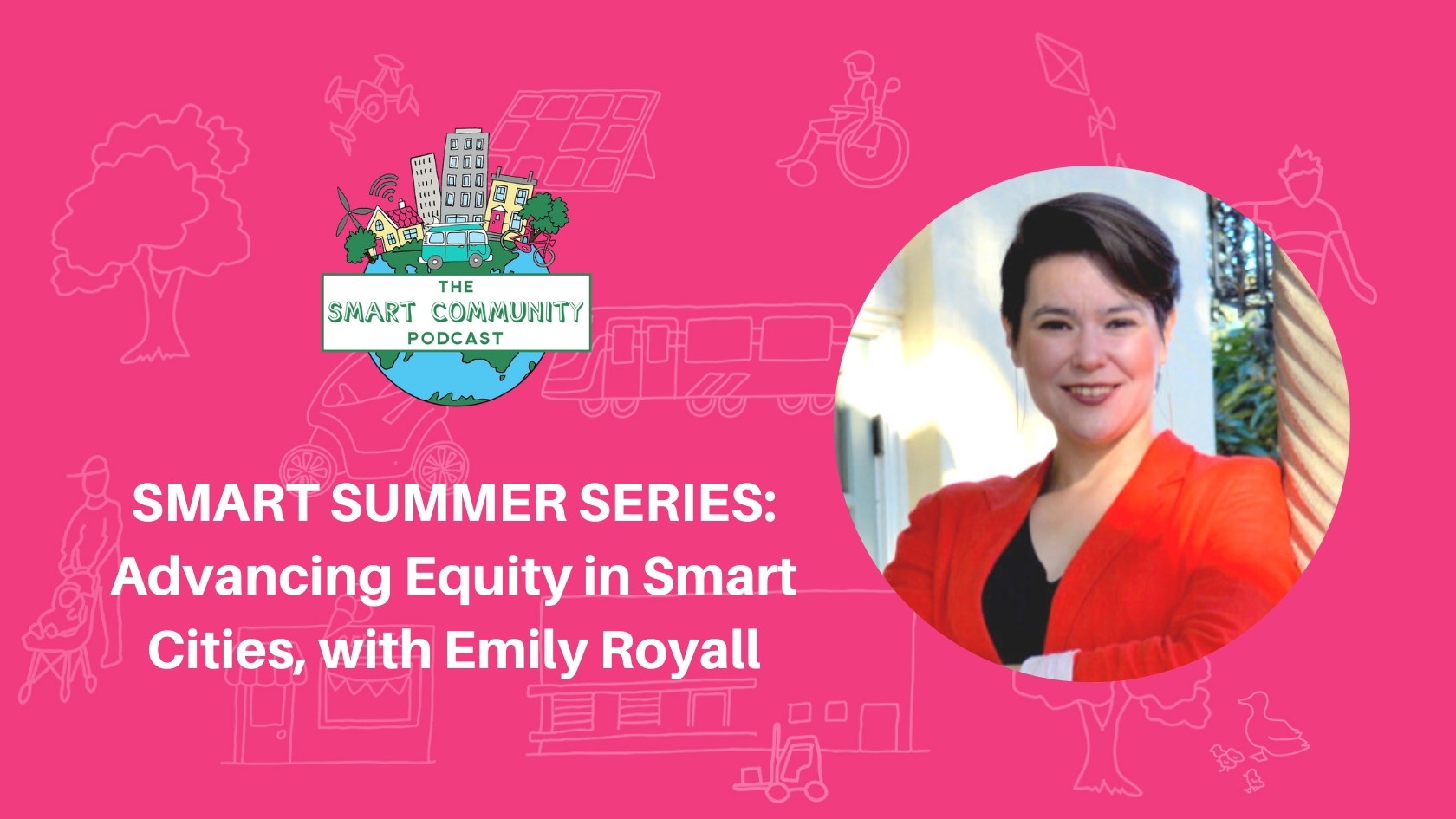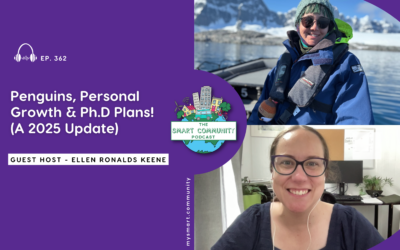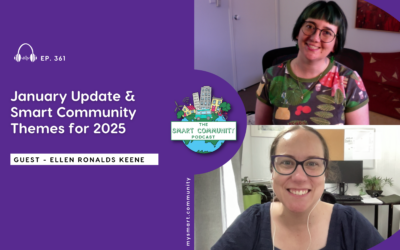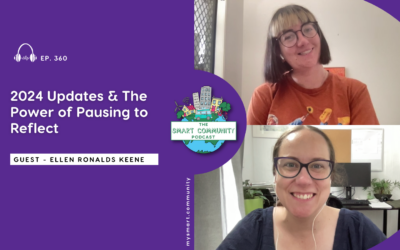Hi #smartcommunity friends! Welcome back to the Summer Series here on the Smart Community Podcast. As you know, we’re taking a little break from new content over the Australian summer holidays, and instead we are sharing the replays of a few of your all time favourite episodes. This week we’re sharing my interview with Emily Royall, from way back in Episode 122, from mid 2019, soon after I got back to Australia from my Churchill Fellowship trip.
Emily is the Smart City Coordinator of the City of San Antonio, Texas. Emily tells us about her passion for advancing equity in Smart Cities, and the Community Driven Smart City model that San Antonio is pursuing. We discuss the digital divide in San Antonio and the equity questions municipalities need to think about when being marketed to by the companies mediating Smart City data. Emily then tells us about a number of really interesting and innovative projects the City of San Antonio is working on, including how they’ve partnered with kids in the local CoderDojo coding program to get viable prototypes for their community. Emily and I finish our conversation discussing her thoughts on integrating across disciplines and the jobs of the future, as well as the emerging trends of digital justice and digital equity.
We’ll be sure to get Emily back on the show in the future for a full update about what she’s been up to and also how our thinking has progressed since this conversation. But in the meantime, we hope you enjoy listening to this episode as much as we enjoyed making it!
Listen here:
What we cover in this episode:
- Emily’s varied background in neuroscience and urban systems, and her passion for advancing equity in Smart Cities
- What sparked Emily’s interest in the Smart City and Community concept
- The Community Driven Smart City or Smart City 3.0 Model that San Antonio, Texas is pursuing
- The digital divide facing San Antonio and the equity questions they’re asking about Smart City data
- The questions municipalities need to think about when being marketed to by the private companies who are mediating the Smart City data, and how San Antonio frames their engagement with the private sector
- How Emily sees America currently embracing Smart concepts
- The challenge of governments keeping up with regulation for emerging technologies
- The projects Emily and San Antonio are working on right now, including CivTechSA, Smart SA partnerships, the Digital Divide Assessment and a Data Governance Strategy and Communications Plan
- The partnership between CoderDojo and the Parks and Recreation Department that sees local kids designing apps for the City of San Antonio
- Using participatory art projects to teach people about data
- Emily’s thoughts on integrating across disciplines and the jobs of the future
- The emerging trends of data justice and digital equity
Quotes:
“In this world of emerging technology that is increasingly being integrated in public space, how do we make sure that citizens are empowered by that technology?”
“When we talk about this Smart City 3.0 model, this concept of Community Driven Smart Cities [we need to ask] if we’re going to plug and play all this cool technology in public spaces, where are we creating gaps by doing that?”
“We can’t just assume that the kinds of data feeds that we get from Smart City technologies are objective or comprehensive or representative of our community. So we have to ask those equity questions on the back end too.”
“[American] local city governments are very embracing of this concept because we are so close to our citizens and we are delivering those last mile services directly to our citizens. I think the struggle in America is at the Federal and State level, we don’t have a lot of regulatory frameworks for emerging technology.”
“We have children coding apps that actually have utility for some of our city departments…I think that’s really special to see in a city, when a municipal government can actually get viable prototypes from their community for technology that they can’t build in house or they don’t want to get from the private sector.”
“Kids can be super engaged in building technology that changes how we interact with public space in the smart city.”
“I really think it starts with education…in this era where so many jobs are potentially threatened by AI, the question became how do we educate our kids? The answer became we focus on creativity and the things that humans will always be able to do.”
“I feel really strongly that the workforce of the future is going to be less siloed because the people that emerge from our education system are going to focus less on trades and skills that can later be co-opted by a machine and more on diversity of experience and awareness.”
“How is technology shaping not just how our culture evolves but how we as individuals perceive our environment and each other? Integrating the cultural development of a city with how interactions are mediated by technology is an emerging discussion.”
“The technology is not independent of us, we create it. So it’s a great time for us to be asking those hard questions about who we are as the harbingers of technological development.”
Links:
CoderDojo https://coderdojo.com/
CivTechSA https://www.civtech-sa.com/
Smart SA Partnership https://www.sa-smart.org/
SCP E19 featuring Laura Forlano
Connect:
Find the full show notes at: www.mysmart.community
Connect with Emily on Twitter @emily_royall and LinkedIn
Connect with me via email: hello@mysmart.community
Connect with My Smart Community via LinkedIn or Twitter and watch on YouTube
The Smart Community Podcast is produced by Perk Digital.






0 Comments